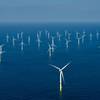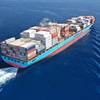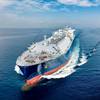Somerville Remarks, LCA & CA Shipowners Conference
At the 73rd Annual Joint Conference of the Lake Carriers’ Association & Canadian Shipowners’ Association in Cleveland on 12 August, 2009, Robert D. Somerville, Chairman and CEO, ABS, gave the following remarks:
As I have already mentioned to several of you, it is a truly great pleasure for me to be here and to catch up on the news from the Great Lakes community. As Jim mentioned briefly in his introduction, I did my time on the Lakes - and it was one of the most enjoyable assignments I ever had with ABS. It was from 1973-77. I was stationed initially in Chicago, Milwaukee and finally Sturgeon Bay which meant I spent a lot of time at Bay Shipbuilding – as it was then called and will probably always be known to most of us.
Enjoyable - because of the special kinship of the Lakes fraternity – the builders, the owners, and the crews that I worked with. Memorable - because of the unique nature of the ships and the trades. And professionally challenging, for an old Texaco tanker man, to have been involved in the new construction of self-unloaders, including being there at the start of the thousand footer project.
Since that time my assignments have taken me all around the world and I regret I have not had the opportunity to come back up north to spend more time in the area with you. That doesn’t mean I haven’t kept a weather eye on your activities - and having several of you as ABS members has also meant I have been able to follow your fortunes - or sometimes the lack of them.
Understandably, all of the newbuildings I attended at Bay Shipbuilding more than 30 years ago are still sailing. But I have noticed the slow decline in the overall numbers of both the US and Canadian-flag fleets over the years – a trend that has mirrored the decline in the traditional heavy industries along the lake shores. It is sad to drive through Lackawanna on the Buffalo foreshore these days and see the miles of largely abandoned mills that, in the early seventies, were pouring steel.
I have never been able to understand why American shipbuilders, who invented the series production of ships with the Liberty ships and T-2 tankers, conceded their technical superiority and now take twice the time, and charge twice as much, to build the same ship as their Asian counterparts. And I never thought that, in my lifetime, General Motors would declare bankruptcy. But those are the unfortunate facts of our modern North American economy.
And so I think back to the names I used to encounter all the time – Bethlehem, Republic, Kinsman, Cleveland Cliffs, Oglebay Norton, Hanna, Hall, Patterson, Misener – all gone from the shipping business. Some, casualties of the mismanagement of their parent companies. Some, as a result of wider strategic decisions by their parents and others casualties of the decline of US and Canadian manufacturing or an inability to keep pace with changing times.
Even Bay Shipbuilding itself is now Fincantieri Marine Group – it seems the Italians are now better than us at both building ships and building cars. Sad, sad times and a terrible commentary on the decline of American industry. Why is it that, in some areas such as in the high tech sector, we continue to lead the world with unmatched ingenuity and vision while in the more traditional heavy industries we continue to lose our way? Is it a paralysis of intent, of action, of ability?
I don’t think any of those apply to the owners and operators of the Lakes fleet. There is no more efficient bulk carrier in the world than a Great Lakes self-unloader. You have always been – and continue to be - extremely resourceful ship managers. Your captains are some of the best ship handlers you will find anywhere. The efficiency of the entire Great Lakes transportation system is absolutely remarkable. But then I look at the environment in which you operate.
The ships may be the same as when I was on the Lakes 30 years ago but so are many of the issues that are brought up every year at this conference:
• an infrastructure that has been seriously underfunded for decades on both sides of the border
• insufficient water levels in the ports and channels which continue to mean that your ships’ carrying capacity cannot be fully utilized
• it was wonderful to hear that ground was finally broken on the coffer dams needed to build the new Super Lock at Sault Ste Marie just a few weeks ago, but how long did this take? How many years of begging and badgering and lobbying?
• The same with the Mackinaw – 62 years old before she was finally replaced, despite decades of pleading. And still there is need for more ice-breaking assistance.
All of this at what cost to the efficiency, productivity and competitiveness of the system, and to the environment?
In so many ways you represent a microcosm of the plight of the shipping industry in many nations around the world –
• taken for granted,
• under appreciated,
• under the radar
• and subject to the whims of legislators who, with a few notable exceptions, do not understand how integral this industry is to the global and their local economies.
Too many of those with influence over the conduct of shipping have no concept of the efficiencies that are provided and tend to view shipping as a ravager of the environment rather than being the least invasive of all transportation modes. And it seems to me there is no easy resolution – for you or for the industry as a whole. Perhaps one encouragement I can offer you on that score is that, because of the captive nature of your operations, you are largely immune from interference by the transportation regulators in the European Commission who have taken square aim at the shipping industry:
• at shipowners
• at liner operators
• at seafarers who they are intent on treating as criminals
• at insurers
• and, most definitely, at classification societies who they deem to be “too powerful”.
I say “largely immune” as Brussels recognizes no borders in its efforts to impose their whims on the shipping industry. The most recent example was the late March enactment by the European Parliament of a new Directive and new Regulations governing the conduct of Recognized Organizations, or classification societies. What happened was that European-based manufacturers of marine equipment and materials felt that the existing practice, by which the classification society selected to class a newbuilding also certified the equipment to go on that newbuilding, was adversely affecting their competitiveness.
As a consequence, they lobbied the European Commission to change the regulations and require the class societies to mutually recognize each other’s certificates for equipment and materials. And they were successful in doing that. But the EC knows no bounds. It not only introduced these new requirements for EU-built or flagged vessels but stated that these new regulations applied to all classification activity worldwide of EU recognized societies. So what does this have to do with you?
I know that there has not been a new laker built up here in over 20 years, but there will come a time. Let’s say, for example, that American Steamship contracts for a new US-flag, Jones Act laker to be built at the Bay Ship/Fincantieri yard, and they want that ship to be ABS class. It is probable that a proportion of the materials and equipment to be used in the vessel’s construction will be sourced from an Asian-based manufacturer.
If the new EU requirements were to be applied, as conceived by their authors, that equipment could be certified by a classification society you had never heard of and yet ABS would be forced to accept it or risk being barred from operating in the 27 member States of the EU.
To me this just doesn’t make sense. We have European bureaucrats attempting to tell an American shipowner, and an American shipbuilder, the US Coast Guard, and an American classification society what they must accept to be installed aboard an American-flag ship trading between American ports under the Jones Act.
As if you didn’t have enough problems already! Well, the long and the short of it is “that it ain’t going to happen”.
The US Government and the Coast Guard have made it very clear to their European colleagues that they are not going to roll over and let them trample on US Sovereignty.
The marine insurers have said that this will increase the risks they are being asked to insure and will stick with the existing system.
And the classification societies have agreed only to consider a very limited extension of the principle to non-critical items, as the potential exposure to liability that it carries is simply unacceptable.
I give you this example to let you know you are not alone in your legislative frustrations. You already know the world of the Lakes is not entirely isolated from the wider issues in the industry.
For example, thanks to the zebra mussel and the other exotic aquatics that were imported into the Lakes almost 20 years ago, the entire worldwide shipping industry is now wrestling with how it is going to implement an effective and cost efficient ballast water treatment program.
I am sure you have been keeping abreast of the most recent developments from the IMO, including the granting of full approval to an additional four ballast treatment systems by the MEPC just last month. What is of concern is the tendency of individual nations, regions or states to think that they need to impose unilateral requirements regardless of what the rest of the world is doing.
I see that this unnecessary approach has been adopted by some of the states bordering the Lakes. My hat is off to Illinois, Indiana, Minnesota and Ohio for recognizing that shipping is an international, not a local industry and adopting the IMO standards. Not so for Michigan, New York, Pennsylvania and Wisconsin who continue to live in a parallel universe.
In New York’s case, newly built international ships wanting to call in their ports must meet a standard one thousand times more stringent than the IMO requirements. Unfortunately, these legislators belong in the same distorted world as some of their counterparts in Brussels.
And I am also sure you are keeping abreast of the IMO – and your own governments’ efforts to impose stricter limits on emissions including the proposed North American Emissions Control Area. There should be no need for me to go into detail about the implications this will have, starting with the increased cost and adequacy of supply of MDO. What I hope is that regulatory changes such as these spur technical innovation that results in effective and efficient methods of compliance.
And it is my hope that these innovations come from North American entrepreneurs, using the challenge as an opportunity to carve out new business opportunities. I couldn’t be more pleased than to learn that Hyde Marine, right here in Cleveland, has developed what my technical people tell me is probably one of, if not the best ballast water treatment system currently available.
If anyone from Hyde is here today – my congratulations. With respect to emissions, it would appear that a small company in Singapore, Ecospec, has the inside track on this. ABS has been observing and verifying the results of their trials – both on board an aframax tanker and under more controlled and extensive shore based testing - and the results hold great possibilities, not just for the shipping industry but all industries.
A few weeks ago, we participated in a presentation they gave to those attending the MEPC meeting at the IMO. We were able to confirm that, at the most recent tests that we witnessed, the system removed 100 percent of the SOx, 65 percent of the NOx and reduced the CO2 by between 47 and 50 percent. If these test results can be substantiated in practice, they hold enormous implications for society – a system that has the potential to halve CO2 emissions is remarkable.
So yes, ingenuity and resourcefulness are alive and well – in this country and throughout our industry. We are all accustomed to challenges that are put before us – whether here on the Lakes or around the world. Time and again we have risen to meet those challenges. And we will continue to do so because, underappreciated though this industry may be, the world would literally grind to a halt without us.










